Climate Adaptation & Resilience
Communities across New England and around the country are experiencing climate change through rising seas, warmer temperatures, increased frequency and intensity of precipitation and flooding, and more extreme weather events. We help states, local governments, tribes, and the private sector plan and pay for the infrastructure necessary to protect critical environmental resources and foster resilient communities.
Services
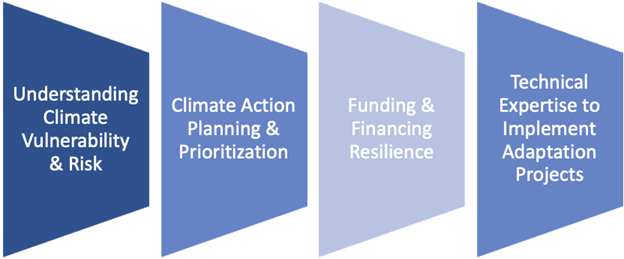
Projects
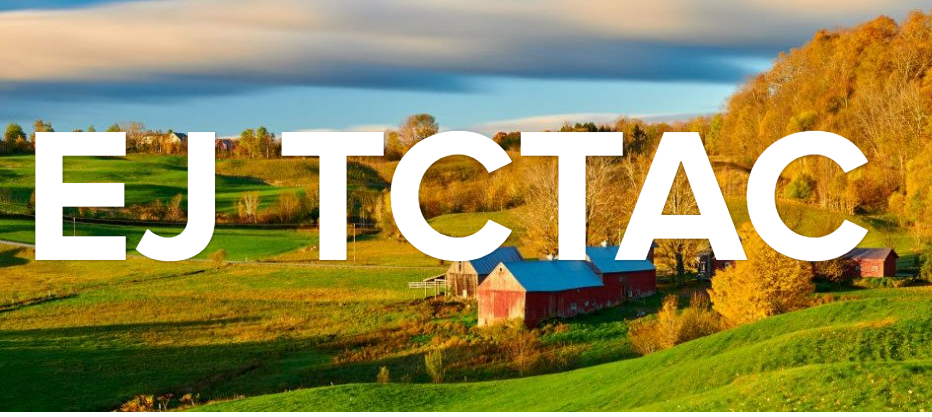
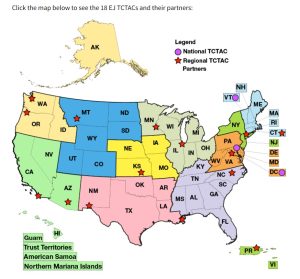
New England Environmental Justice Thriving Communities Technical Assistance Center
The New England Environmental Justice Thriving Communities Technical Assistance Center (EJ-TCTAC) is a resource and technical assistance hub for the region’s underserved and rural/remote communities. Led by the University of Connecticut, in partnership with the NEEFC and others, the TCTAC’s mission is to remove barriers and improve accessibility for communities facing environmental justice concerns. We provide training and assistance to help organizations navigate federal and local grant systems, develop strong proposals, and manage grant funding effectively.
As a EJ TCTAC partner, NEEFC helps communities pursue funding to solve environmental, energy, and climate challenges. In addition to funding application support, we help communities understand local and regional climate vulnerabilities and risks and the intersection with environmental and energy justice challenges, develop climate action plans and prioritize projects that advance equitable adaptation, and provide technical expertise to advance adaptation projects and policies.
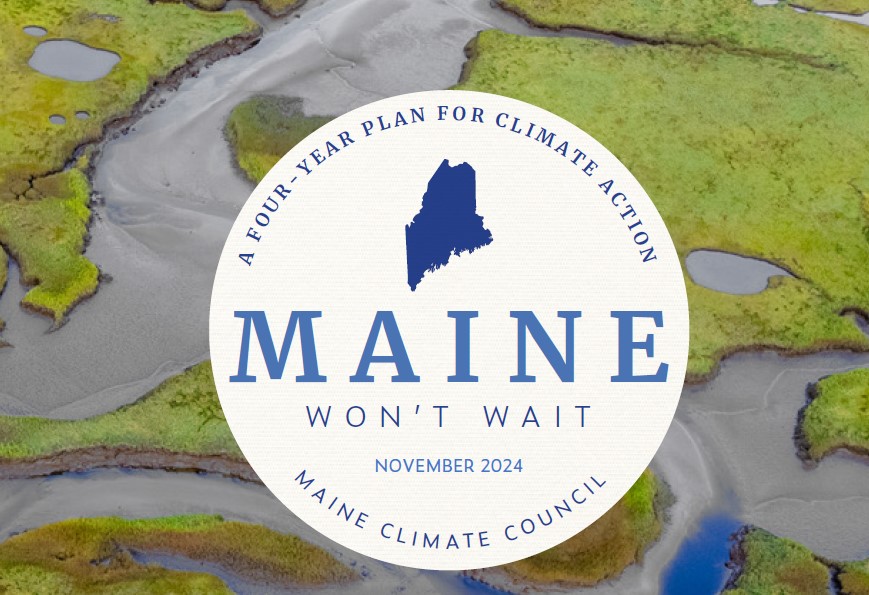
Funding and Financing Policy Recommendations in Maine’s Climate Action Plan
The Maine Climate Council released an update of the State’s climate action plan, Maine Won’t Wait, in November 2024. The plan aims to reduce Maine’s greenhouse gas emissions, strengthen resilience to climate impacts, and bring climate action to all Maine people, while creating jobs and economic prosperity. The NEEFC participated in the process of updating the plan, helping develop new recommendations to ensure funding is available to pursue the actions proposed in the plan and accessible to the Maine communities and priority populations who need it (see Strategy F. Build Healthy and Resilient Communities). Specific actions include:
- “Expand finance options to ensure sustainable funding and financing for climate-ready infrastructure and adaptation projects. Study the feasibility of a ‘Resilience Bank’ and other finance tools by 2026.”
- “Simplify and coordinate state grant application processes, including a common access portal for information about state grant programs, by 2026.”
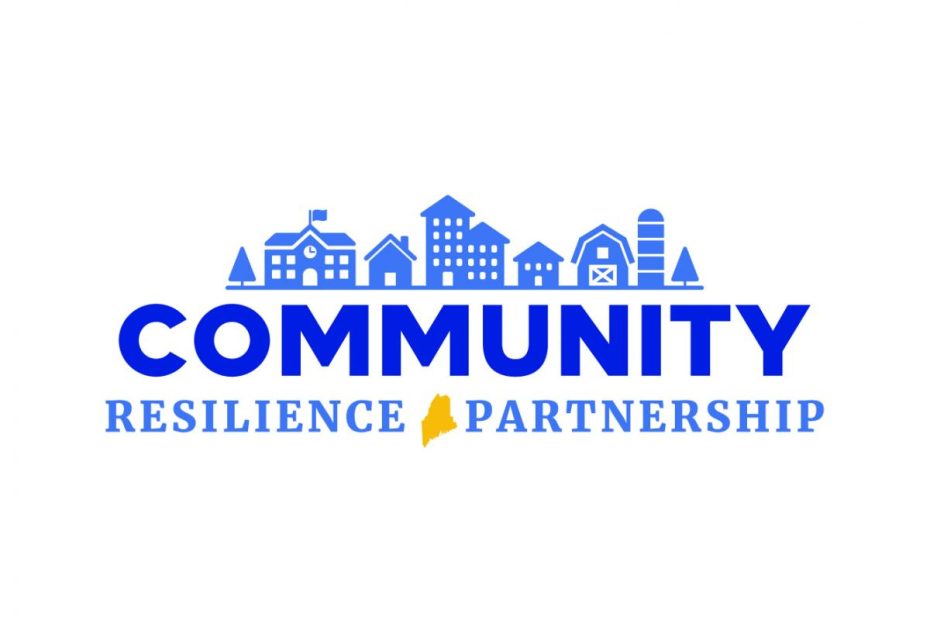
Building Resilience in Maine Communities
Tools, resources, and direct technical assistance to help communities enroll in Maine’s Community Resilience Partnership, prepare for the effects of climate change, and secure funding for resilience priorities.

Casco Bay Coastal Academy
Casco Bay Coastal Academy is a quarterly workshop series aimed at building the knowledge base of municipal board members, municipal staff, and others about critical coastal issues, and providing skills training to support their project planning and implementation.
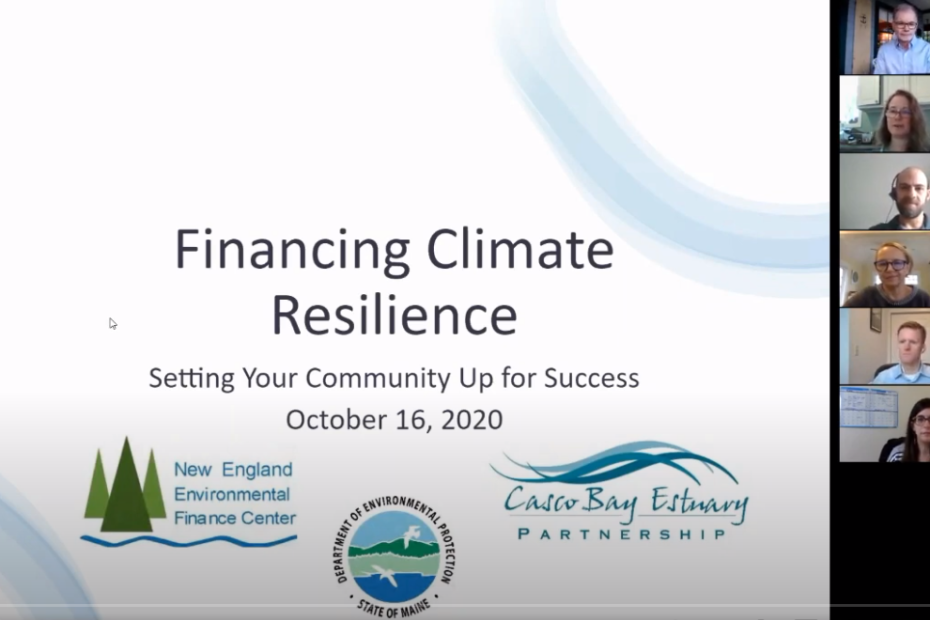
Climate Resilience Funding Workshops
These series of workshops offer knowledge sharing, idea exchange, and real-world advice and inspiration on how to finance sustainable community actions to achieve climate resilience. Participants are led through successive sessions that build upon one another, from understanding what grant agencies look for in their applications, to beginning the process of establishing sustainable financing sources.
Resources
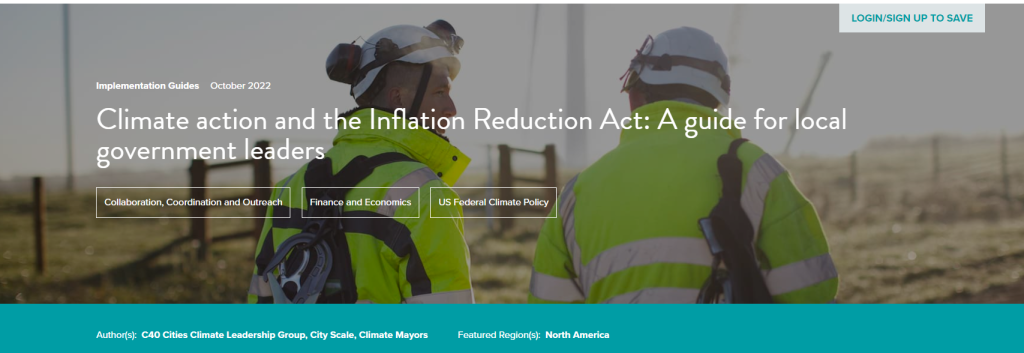
Climate action and the Inflation Reduction Act: A guide for local government leaders. This guide book includes details about the allocation process, strategic action, eligible projects, related provisions, and additional recourse for local governments. The Inflation Reduction Act of 2022 (IRA) is the largest investment in climate action the United States has ever made and will provide $369 billion for climate solutions across the country.
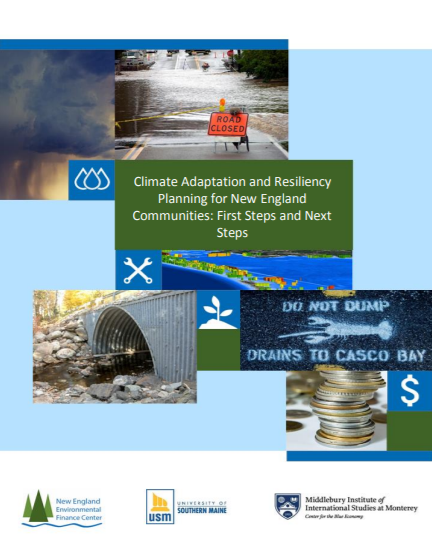
Climate Adaptation and Resiliency Planning for New England Communities: First Steps and Next Step
This guide synthesizes the array of accessible, relatively low-cost online tools that smaller communities around the nation, and particularly in New England, may find helpful to plan for climate adaptation and resilience. These tools include guidelines, models and visualization tools, communication guidelines, financing adaptation measures, and case studies.
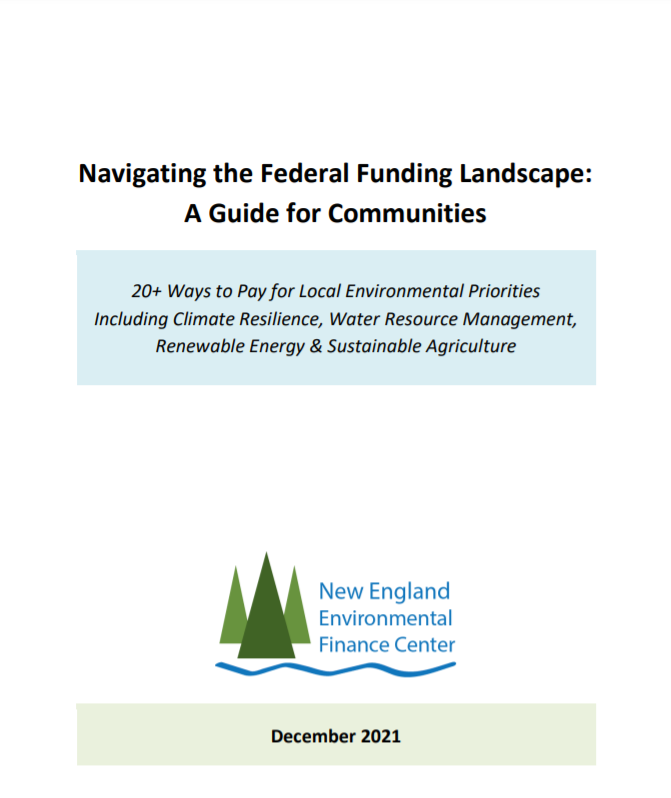
Navigating the Federal Funding Landscape: A Guide for Communities. This guide was developed with small- and mid-sized villages, towns, cities, and tribes in mind to help these communities align priorities with available funding and serve as a jumping-off point for additional research, before investing time and energy into the application process. This guide provides a snapshot of more than 20 major federal funds that support local environmental and climate-related priorities.
Find these and other resources on the Resource page.